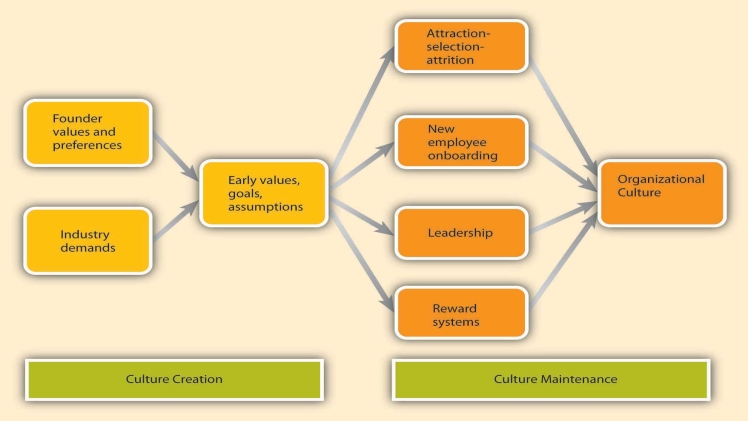Corporate culture is one of the most frequently discussed topics in the offices of top managers and shareholders today. It is obvious to most that the corporate culture of an organization is the foundation of its vitality.
No technology, no regulation, and no innovation will be fully realized if the staff is not “special. For example, customer-oriented, caring, passionate, productive, innovative, etc.
But how to achieve it?
It is necessary to formulate the values of the company. Optimally, if the values of the company are a consequence of the Leader’s personal mission. For example, working with children, developing cancer treatment methods, making information as accessible as possible to everyone, developing innovations, etc. Often the Leader does not have such a mission. Then the values are defined based on the functional needs of the business. This requires answering the question, “How should people in the organization behave in order to succeed in the marketplace?”
You can make quite a big list of values, but it is important to choose no more than 5 and make them real for the staff.
How to make company values a reality for the staff?
Putting values on the walls and memorizing them by heart will do nothing. It is important to describe each value through 1-3 behavioral markers. The markers should be clear, simple, and recognizable in reality. For example, a clear understanding by employees that it is ‘not decent’ to discuss a colleague in his absence. The main thing is the focus on results.
How to introduce new values into the corporate culture and create new norms of behavior?
Implementation requires:
- Develop process changes in the company that support the initiative. For example, if we want to be innovative, we need to create a procedure for collecting innovations, learning and implementing them, as well as an incentive system. We need decision-making processes that will promote innovative projects in the first place.
- Management should be trained in techniques to explain values, provide feedback based on values and handle staff objections based on values, and make decisions based on values.
- Time tracking and invoicing software as part of corporative culture
All these steps will take at least a year, but the result will be worth it.
Leader as a carrier of values
The answer to the question of how to embed new values in the corporate culture lies on several levels at once.
The first of these is the general manager, owner or director. There is no point in creating value and implementing them in the company if the Leader is not their carrier. You cannot force the staff to be different from the Leader himself.
Staff will adapt to the leader and simply find a way to deceive you into thinking they are behaving ‘properly’. This is how a culture of duplicity and deception is created. Then it is very difficult to eradicate this attitude.
It is much more advantageous to just be honest, even if the Leader is evil, cynical, paranoid. People much more easily tolerate negative bosses than hypocrisy and duplicity. And, strangely enough, the staff may be fine with that.
I know a company where corporal punishment is practiced. Surprisingly, there is no turnover and everyone is happy with it. To be fair, it should be noted that such punishments are rare and only if the manager’s mistake caused a loss to the business. This is a kind of “kid’s” culture.
Honesty towards staff is something that everyone can achieve. Honestly expressing outright disrespect for staff doesn’t kill a business, although it doesn’t make it successful. Examples abound.
Choice of company values
Plane two. Corporate values, which are chosen as the company’s semantic reference point, should be linked either to the leader’s personal mission or to the functional needs of the organization.
A leader’s personal mission may be: curing children, creating information infrastructures in the country, i.e. something a Leader cannot help doing. Many leaders do not have such missions, their mission is simply to build a successful business. Often they are the ones who start inventing “artificial” values.
Values by function
If there is no personal mission, values should be formulated on a functional basis. For example, if a business works with the end consumer, then a positive attitude towards the client is the basis of the company’s success. This is a functional value. And often Leaders themselves are willing to show real benevolent sincerity to the client, while not being benevolent in nature. But in this case the leader will be able to set an example, teach others and get the employee to behave similarly.
Read More About: f95zone

